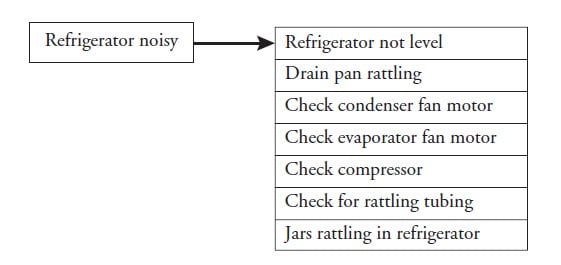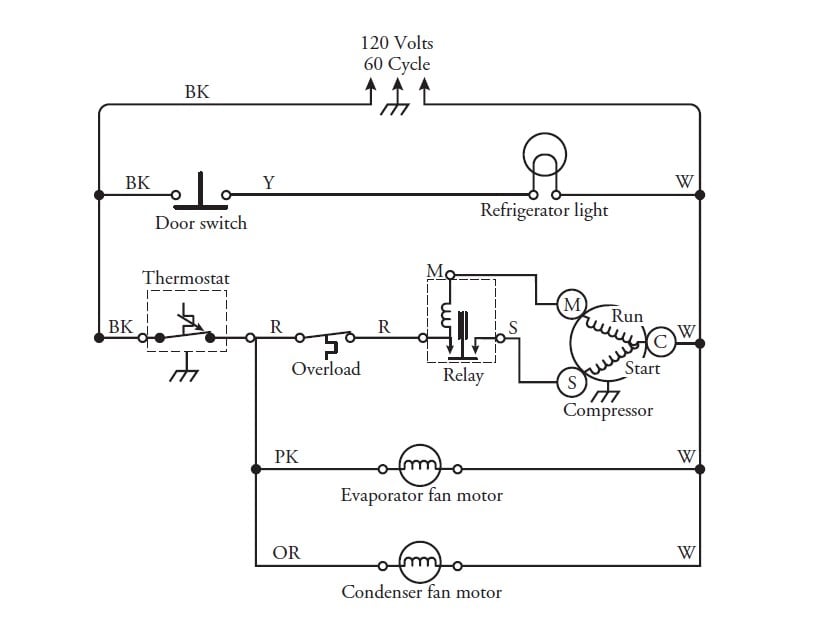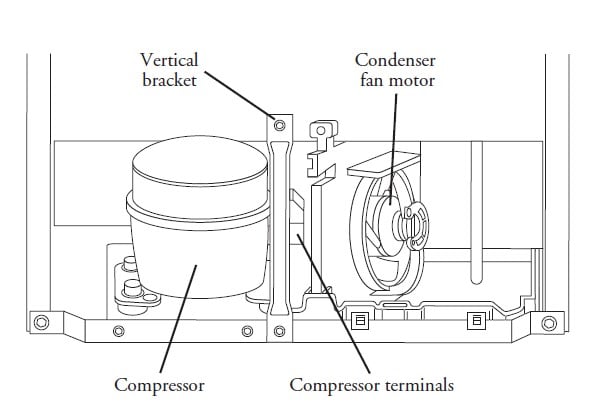Troubleshooting Noisy Refrigerator
How do I fix my refrigerator?
Whether the brand is Maytag, Frigidaire, Samsung, Whirlpool, Bosch, GE, or something else, if you have noticed that your fridge seems to be making a humming noise all the time or your freezer is melting, or making noise, here is a list of solutions for common problems that can be checked at home without calling for a repair. A refrigerator making loud noises is usually a symptom of one of five common issues that result in a lack of cooling within. If the fridge seems too loud, or too warm or even too quiet, you can check it yourself. Whether or not your fridge is still on warranty, you can save money on these first steps. Simply follow the instructions below.
What to check:
In order to cover your bases before calling a certified repair expert to fix the problem, check these five parts first, to see if there is a simple solution that can be implemented at home, in Toronto and surrounding areas.
Condenser Fan Motor
Not all fridges have one. If the fridge has a bunch of thick metal coils on the back, it probably doesn’t. If the fridge’s coil is located on the inside, it has a fan used to force air through them. That is what you will be checking in this step.
Evaporator Fan Motor
This keeps the freezer air below zero. It is inside the freezer.
Evaporator Fan Motor Grommet
There are two grommets on the Evaporator Fan Motor: one on either end of the motor.
Compressor
The compressor is the part responsible for the on/off cycles of white noise that refrigerators are often known for. It is located in the internal workings of the fridge. Refrigerator is buzzing.
Water Inlet Valve
The water inlet valve is on the back of the fridge. It connects the water supply to your fridge’s internal cooling and electrical systems.
Step-By-Step Instructions:
Condenser Fan Motor
Since this is the simplest to check, test it before the other parts. First, unplug the noisy refrigerator from the wall. Second, check the fan by pushing the rotor blade with your hand. If it won’t turn, it may be dirty on the inside. A spray of oil is a simple fix that can help it turn again. If it turns, the fault may be in the electrical wiring, which needs special equipment (a digital multimeter, or DMM) to test.
Evaporator Fan Motor
First, check if the freezer is working. If it is cold, and things are still frozen, chances are the Evaporator Fan Motor is not the problem. If the items in your freezer have begun to defrost, then move on to the next step. Second, make sure the temperature settings on the unit are correct; if so, check for overcrowding in the freezer compartment that could be keeping the cool air from entering. Third, press the freezer door trip switch with your hand, while holding open the door. If the freezer fan starts making noise within a half minute or so, the evaporator fan motor is probably fine.
Evaporator Fan Motor Grommet
First, check the grommets located on either end of the motor. They should be firmly in place with no loose, missing or broken parts. If they are defective, old or broken, you can replace them easily.
Compressor
The compressor is the part responsible for the well-known refrigerator humming noise that turns on and off. If it has stopped working, the fridge noise will be strangely absent. First, pull the fridge out from the wall and listen to the back of it. There should be a tell-tale sound, even when it isn’t very loud. If all you hear is silence, it might be broken.
Water Inlet Valve
First, unplug the fridge to reduce the risk of electric shock. Ensure you can replace the wires in the same place before unplugging them. (Labeling may be necessary.) Pull off the slip connectors and check for corrosion. If connectors are corroded, they will need to be replaced. Second, look at the water filter screen. If it is blocked, that is a problem. Clean it with a small brush and warm water. The filter must be cleaned or replaced.
-
1
 Call Us
Call Us -
2
 Get a Quote On-Site
Get a Quote On-Site -
3
 Get Your Appliance Fixed
Get Your Appliance Fixed -
4
 Visa | Cash | MasterCard
Visa | Cash | MasterCard -
5
 Enjoy Your Day
Enjoy Your Day





